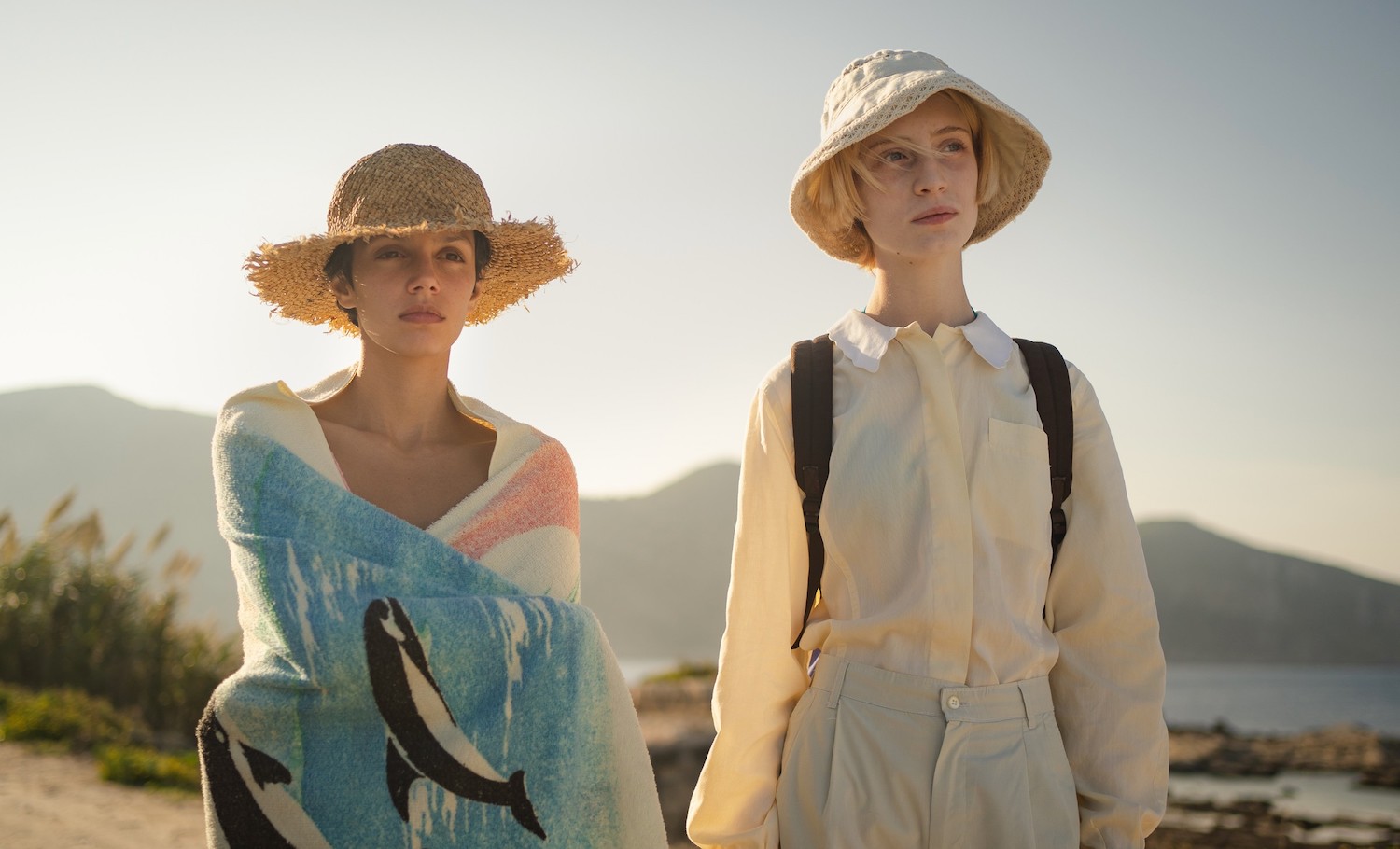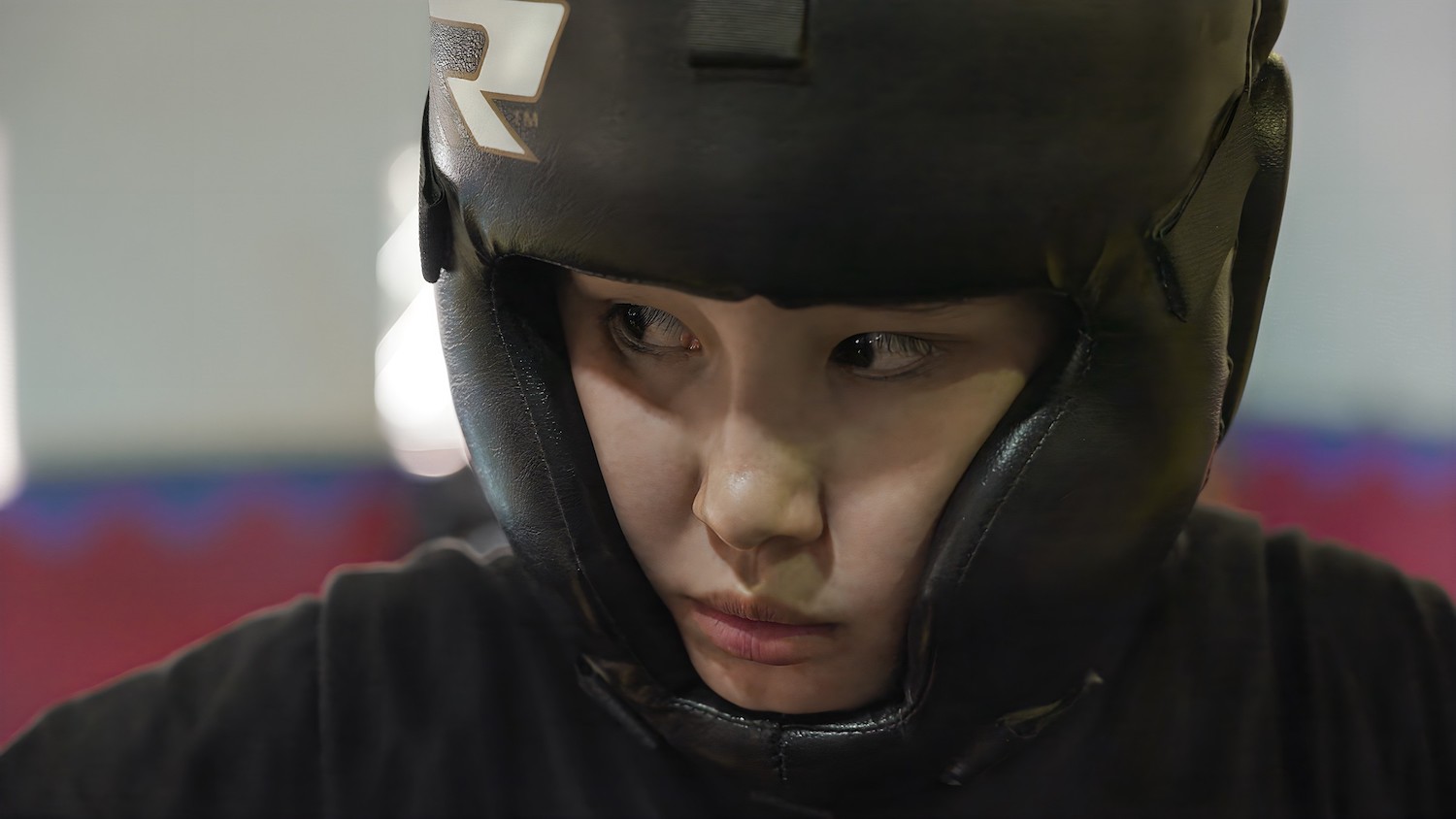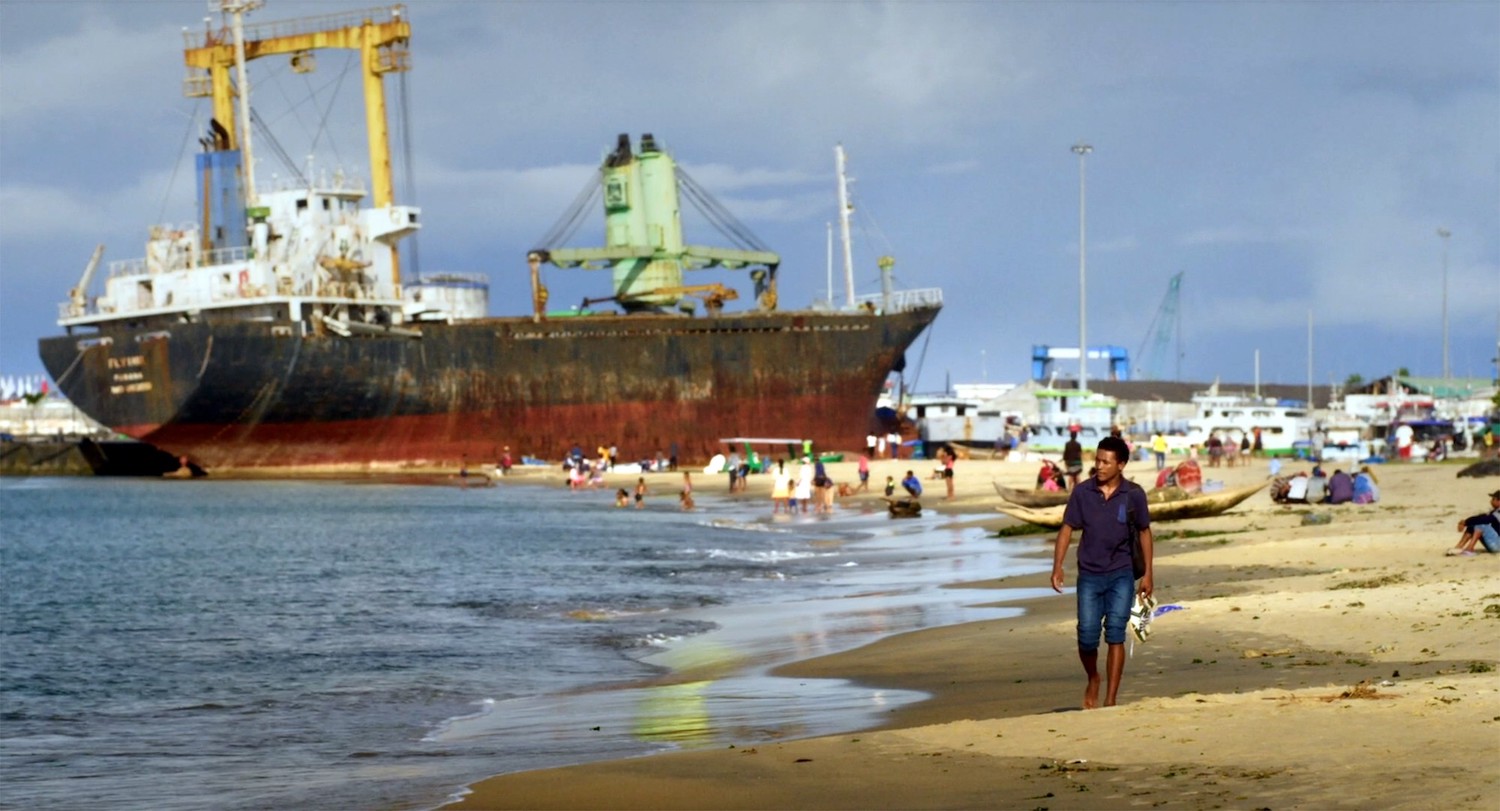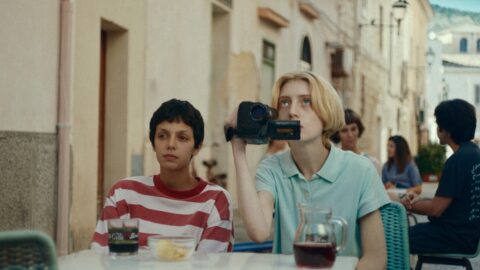The Berlinale Generation, including Generation Kplus and Generation 14plus, explores the world from a childlike and teenage perspective, providing a home for challenging and outspoken film, promoting sensitive conversations around contentious subject matter.
The films below offer a glimpse into the diversity of stories presented at this year’s edition: My Summer with Irène (Carlo Sironi, 2024) offers a nostalgic adolescent discovery throughout a Sicilian summer, the documentary Maydegol (Sarvnaz Alambeigi, 2024) explores the resilience of a teenage Afghan girl in Iran, and Disco Afrika: A Malagasy Story (Luck Razanajaona, 2023) presents memory and identity amidst contemporary Madagascar’s political turbulence.
The two latter films in particular beautifully realise the cinematic ambition of presenting personal, emotive stories against the backdrop of contemporary, contentious political realities, an ambition which runs throughout so many of the films at Berlinale.

A Subpar Summer
In Carlo Sironi’s second feature film, a gorgeous Sicilian summer forms the backdrop to the intensity of adolescent friendships, love affairs and all the usual coming-of-age growing pains. Set in 1997, the film explores the bond between Clara and Irène, two teenage girls who meet by chance whilst recovering from serious illnesses at a hospital. What ensues is a whimsical escapade, with the pair fleeing to a remote Sicilian island with all the desperate urgency of seventeen-year-olds craving A Summer Worth Living For.
Sironi attempts to capture the ephemeral essence of youthful awakening and the enduring impact of formative experiences. However, despite its promising premise, My Summer with Irène falls short of its aspirations. The characters, while beautifully portrayed, lack depth and fail to resonate beyond their superficial charm. The narrative unfolds at a languid pace, bordering on tediousness, devoid of the emotional depth required to sustain engagement.
Usually, a slow-paced, beautifully shot Sicilian coming-of-age female friendship movie sounds like my ideal film. Unfortunately, My Summer with Irène succumbs to clichés and fails to carve out a distinctive identity. While the cinematography captures the picturesque beauty of the Italian coast, I couldn’t help being reminded of the wealth of contemporary cinema portraying similar themes in gorgeous surroundings. This film lacked what the others fulfilled.
The intense two-character relationship in a Mediterranean summer holiday setting featuring a retro video camera felt incredibly reminiscent of Aftersun (Charlotte Wells, 2022). But My Summer with Irène lacked the raw authenticity and narrative depth that made Wells’ debut so memorable.

Afghani Resilience in Iran
Set in contemporary Iran, Sarvnaz Alambeigi’s gripping documentary Maydegol captures the unbelievable beauty, intensity and pain experienced by a teenage Afghan girl living with her conservative immigrant family. We follow our protagonist as she pursues her dreams through clandestine training as a Muay Thai boxer, a pursuit which means everything to her. She relentlessly endures serious physical abuse and familial opposition, and fights tirelessly against devastating socio-political barriers with an unbelievably moving and profound determination.
Alambeigi’s direction imbues Maydegol with a vital empathy and poignancy in this raw and moving portrayal of immigration, women’s rights and generational violence. The film offers a revealing glimpse into the complexities of contemporary Iran and Afghanistan, providing an insight into the on-the-ground, everyday circumstances of the real people living in the countries that we, in the West, so often only see through news headlines.
In the current socio-political landscape of Afghanistan and Iran, the significance of watching contemporary Iranian cinema, particularly cinema made by female filmmakers, cannot be overstated. As well as being a politically important film, the creativity, storytelling and raw emotion of this documentary make it a must-watch.

Legacy, Heritage, Memory
Luck Razanajaona’s Disco Afrika: A Malagasy Story emerges as a quiet yet powerful revelation, offering a poignant exploration of identity and memory in modern-day Madagascar. Playing in Generation after premiering at the Marrakech Film Festival last year, Razanajoana offers us a thoughtful insight into his country’s culture, history, politics and people.
Set against the backdrop of Madagascar’s cyclical political crises, we follow 20-year-old Kwame, who returns to his village after a disappointing, and ultimately traumatic, experience of clandestine diamond mining. Razanajaona skillfully weaves together a story of familial legacy, musical heritage and national memory. Kwame struggles to find work, faces corruption and battles the silence around the repression of his country and his family.
Razanajaona’s restrained direction allows the story to unfold with quiet intensity, inviting audiences to immerse themselves fully in the narrative’s depths. As he states, this film is important in showing that “Every 10 years, the same things always happen: Uprisings lead to failure. The years of independence were a failure, so maybe it’s up to young people to take back a little hope of changing things.”
Disco Afrika: A Malagasy Story refuses to shy away from the harsh realities of violence and corruption, yet it maintains a placid tone. Through its evocative storytelling and unwavering gaze, the film offers a poignant reflection on resilience and the enduring power of hope in the face of adversity.
Martha Bird is a freelance journalist and filmmaker focussed on issues of gender, left wing politics and independent cinema; she is currently based between Bologna and Berlin.
